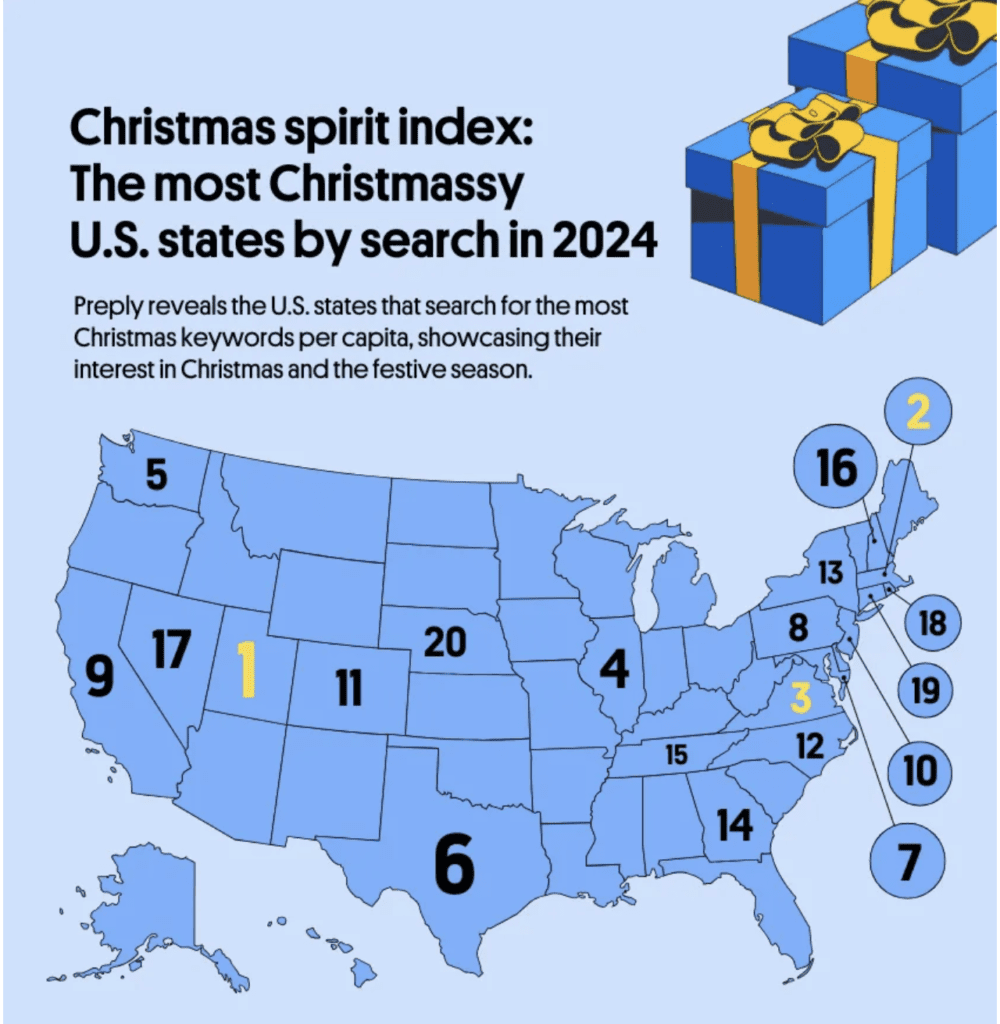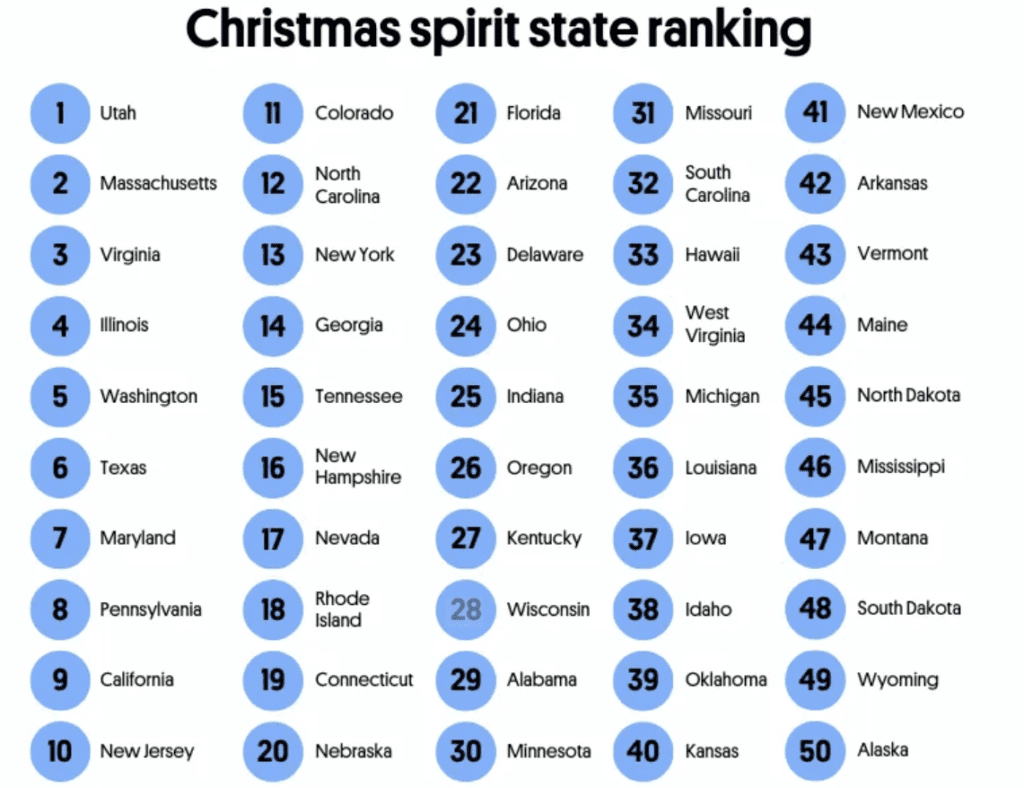Daniel Salzler No. 1285
EnviroInsight.org Five Items December 20, 2024
—————Feel Free To Pass This Along To Others——————
If your watershed is doing something you would like others to know about, or you know
of something others can benefit from, let me know and I will place it in this Information .
If you want to be removed from the distribution list, please let me know.
Please note that all meetings listed are open.
Enhance your viewing by downloading the pdf file to view photos, etc.
The attached is all about improving life in the watershed through knowledge.
If you want to be removed from the distribution list,
please let me know. Please note that all meetings listed are open.
Check our website at EnviroInsight.org
1. HOP ON THE ‘POLAR EXPRESS’ FROM MIDTOWN TO DOWNTOWN – Join a festive ride to celebrate clean air, a healthy watershed, and accessible public transportation for everyone. The free Sun Tran bus, dubbed the the “Polar Express,” will depart Watershed Management Group’s (WMG) Living Lab, 1137 N. Dodge Blvd., on Thursday, Dec. 19, at 5 p.m., and beyond. Along the way, it’ll make stops at local businesses before

heading downtown to Hotel Congress. This all-ages scavenger hunt is a fun way to explore the bus system, enjoy free goodies from local businesses, and connect with others who share the vision of a sustainable desert city. The Polar Express will depart at 5 p.m., 5:30 p.m., and 6 p.m. Just show up 15 minutes ahead of time. You can learn more and register at the link below.
More information from WMG
Register
2. Candy Canes Are Curved To Resemble What?

a. A fishing hook
b. The letter “J”
c. A shephard’s crook c. Pine Cones
d. A ladle
Hanukkah gelt represents What Non-edible Item?
a. Coins
b. Marbles
b. Marbles
d. Keys
Answers at the end of the newsletter
3. Trump’s Energy Secretary Pick Preaches the Benefits of Climate Change
Fracking CEO Chris Wright points to positive changes produced by global warming, in contrast with what some oil giants say.

Chris Wright, President-elect Donald Trump’s nominee for energy secretary, says that climate change poses only a modest threat to humanity. The biggest U.S. oil companies disagree.
A fracking executive, Wright acknowledges that burning fossil fuels is contributing to rising temperatures. But he also says climate change makes the planet greener by increasing plant growth, boosts agricultural productivity and likely reduces the number of temperature-related deaths annually.
“It’s probably almost as many positive changes as there are negative changes,” he told conservative media nonprofit PragerU last year, referring to climate change. “Is it a crisis, is it the world’s greatest challenge, or a big threat to the next generation? No.”
Trump has repeatedly called climate change a hoax but hasn’t articulated his views in detail. The selection of Wright is one of the clearest indicators yet that the next administration is likely to push back on widely accepted scientific findings about climate change.
Wright has said “there is no climate crisis,” and that the Paris agreement empowers “political actors with antifossil-fuel agendas.”
Climate Science, or ‘Unproven Theories’
Many in the fossil-fuels industry denied for decades that burning hydrocarbons heated the planet, and companies such as Exxon played down the severity of climate change. In recent years, however, some of these firms have changed their rhetoric. They have committed billions of dollars to low-carbon ventures and set goals to be carbon-neutral across their own operations by 2050.
But smaller, private drillers such as Continental Resources, founded by billionaire Harold Hamm, have set no emissions-reduction goals. Hamm, a Trump adviser who encouraged him to select Wright, has described climate science as “unproven theories.”
President Biden during his term made the DOE a linchpin of his strategy to combat climate change, pouring billions of dollars into the deployment of green energy. Wright has been critical of subsidies to wind and solar energy, favoring instead the development of geothermal and nuclear energy.
Pete Hegseth, Trump’s pick for defense secretary, has called climate science a “religion.” Vivek Ramaswamy, who alongside Elon Musk will seek to cut the federal budget, has pushed back against environmental, social and corporate-governance efforts and said, “The climate change agenda is a hoax.”
Climate deniers and skeptics also surrounded Trump in his first term. Since then, the world has seen a number of extreme weather events, which many scientists say are fueled in part by rising temperatures. Wealthy countries including the U.S. recently agreed to triple the financing they provide for climate-change projects in the developing world to at least $300 billion a year by 2035.
‘A little bit warmer isn’t a threat’
“A little bit warmer isn’t a threat. If we were 5, 7, 8, 10 degrees [Celsius] warmer, that would be meaningful changes to the planet,” he said in the PragerU interview.
Scientists see a 1.5 degrees Celsius temperature increase over several decades as creating potentially irreversible changes for the planet, with profound implications for health, food security and water management. Earth’s average temperature is expected to pass the mark this calendar year.
Wright, a self-described nerd who studied at the Massachusetts Institute of Technology, has engaged with climate-change data in a way that few energy CEOs have. He has taken to Fox News to promote his views on fossil fuels and become a regular on the conservative speaking circuit.
In an interview, Epstein credited Wright with laying out the effects of producing hydrocarbons—and highlighting that they are “overwhelmingly positive” for humanity.
Wright wrote a 180-page corporate paper that delves into the history of energy and climate change. The erudite report relies on figures drawn from the U.N. International Panel on Climate Change’s reports as well as from fossil-fuel consultants, among other sources.
The CEO argues there are positive changes associated with climate change.
Wright cites the fact that the Earth is getting greener as more carbon dioxide lingers in the atmosphere, boosting plants’ photosynthesis. Climate scientists say lusher vegetation has helped mitigate climate change by cooling the land, but that the cooling effect is limited compared with the rate of global warming.
More available carbon dioxide has led to more productive crops, according to Wright. Scientists argue the long-term impact of global warming on agriculture will be mixed, with some farmers benefiting from longer, warmer growing seasons. But new weather patterns could upend today’s key food-producing regions.
Wright also argues that global warming probably reduces modestly the number of annual deaths related to extreme temperatures. Recent estimates from health researchers suggest otherwise. They say that in coming decades, the rise in extreme heat-related deaths will outweigh the decline in extreme cold-related deaths.
Source: Benoît Morenne at [email protected]
3. It’sWinter! What Is The Lowest Recorded Temperature In ArizonaAnd where Was It Recorded? Hawley Lake , tucked away on White Mountain Apache tribal lands, is the site of a record low temperature of -40° at an elevation of 8200ft on January 7, 1971.
4. The Least Christmassy And The Most Christmassy States .
The Least Christmassy
- New Mexico
- Arkansas
- Vermont
- Maine
- North Dakota
- Mississippi
- Montana
- South Dakota
- Wyoming
- Alaska
Source: Mental Floss
The Most Christmassy


5. Colorado River conference ‘mixed bag’ for Arizona water officials
Reagan Priest Arizona Capitol Times//December 13, 2024
Arizona’s water community left the annual conference of Colorado River users with mixed feelings about the future of negotiations on a new compact.
Arizona Department of Water Resources Director Tom Buschatzke and Central Arizona Project Board President Terry Goddard joined other water stakeholders from seven states at the annual Colorado Water River Users Association conference. Tensions were high, according to media reports, and negotiators from Upper Basin and Lower Basin states traded barbs.
The conference came as negotiations over the renewal of the Colorado River compact, which is set to expire in 2026, are at a standstill. Goddard said he was “more confident” after the conference than he was going into the conference, but acknowledged that it was a “mixed bag.”

Terry Goddard
“I could see some very serious discussions taking place informally, person-to-person, the right people were talking and if there’s nothing else that comes out of that, that will be a major step,” Goddard said.
Buschatzke, who is Arizona’s chief negotiator for the Colorado River compact, said he felt like not much had changed between the beginning and the end of the conference and that there’s still a lot of uncertainty surrounding negotiations.
Upper Basin states and Lower Basin states are at an impasse over where cuts need to be made to ensure all seven states will have enough water in the coming decades. The Upper Basin consists of Colorado, Wyoming, New Mexico and Utah, while the Lower Basin includes Arizona, California and Nevada.
The Lower Basin states say they have already made deep cuts to their water usage and would be willing to make more, if the Upper Basin states make their fair share of cuts. However, the Upper Basin states say they have always used less water than their southern counterparts and are unwilling to make cuts to what they currently use.
Goddard said the Upper Basin states’ presentation during the Colorado Water River Users Association conference on their proposal for the river was “very disorganized.”
“That said a lot, because you really don’t have a proposal except to say ‘no,’” Goddard said. “That was a pretty weak position, and I think that led immediately afterward to some very serious discussions as to how we could pull together, because they simply did not have structure that would take us into the next 20 years.”
Buschatzke, alongside representatives from California and Nevada, gave a presentation on the Lower Basin states’ proposal and said he felt they did a “credible job” explaining what he called a “middle of the road” proposal.

“I thought it was evident to everyone … the wide divergence between the Upper and Lower Basins that was evidenced at CRWUA,” Buschatzke said.
Buschatzke and Goddard said that this year’s CRWUA conference marked the first time in their memories that the seven states did not give a presentation on the state of the river together. Buschatzke said this year’s conference was planned by representatives of Upper Basin state Utah, and they decided not to put the two groups on a panel together.
During the conference, a negotiator from California and a negotiator from Wyoming traded criticisms over the opposing plans for the river, according to media reports. California’s negotiator, J.B. Hamby, accused the Upper Basin states of using their share of water to “build pipelines to more golf courses.” Wyoming’s negotiator, Brandon Gebhart, called the comment “bullshit” and called for leadership over “rhetoric.”
The comments reflect the tensions that have led some to consider alternate pathways to a deal. Buschatzke and the Arizona Department of Water Resources have asked the Governor’s Office for funding for a potential legal battle, while the Central Arizona Project voted last week to ask the federal government to explore the possibility of a “compact call,” referring to language in the original 1922 Colorado River agreement.
Under a compact call, the Bureau of Reclamation would impose cuts on the Upper Basin on behalf of the Lower Basin. Goddard said the CAP board’s vote on a compact call did cause a lot of conversation at the CRWUA conference and said it is “a very real possibility in the future.”
Buschatzke noted that the Lower Basin states presentation at the conference highlighted just how dire a compact call could be for the Upper Basin compared to the proposal offered by the Lower Basin.
“The volume of water that the Upper Basin would need to reduce under a compact call, from our perspective, was significantly bigger than what we’re asking them to reduce in a collaborative, voluntary plan, and that has been lost, I think, in relation to what’s on the table,” Buschatzke said.
While entities like CAP are interested in a compact call if negotiations stay stalled, Gov. Katie Hobbs would not comment on that or the possibility of a legal battle over the river.
“These are hypotheticals,” Hobbs told the Arizona Capitol Times on Dec. 9. “At this point, we’ll continue to move forward and work with the process as it unfolds.”
Despite the tensions, Hobbs said she feels “good about negotiations continuing to move forward.” She said Upper Basin states need to bring meaningful compromises to the table in order to make that happen.
“The Lower Basin cannot bear the brunt of any cuts that come, and we’re going to continue to make that case and negotiate,” Hobbs said.
Goddard said he thinks the Lower Basin states need to keep all options open to ensure a deal is made because any agreement would need approval from Arizona’s Legislature and Congress.
“We much prefer to have the seven states – as they have before – work it out without federal interference and without court interference,” Goddard said. “But we’d be foolish to ignore that when the other side refuses to come to the table under any circumstances, that legal action might be needed.”
He said the ideal timeline would see productive negotiations taking place throughout 2025 until a deal is reached, so that 2026 “is a time to wrap the package up and put a bow on it.”
While Buschatzke and ADWR are preparing for alternative possibilities, he agreed with Hobbs that they will continue to work with the usual process.
“The state of Arizona wants a negotiated outcome,” Buschatzke said. “We do not want litigation. I know Governor Hobbs made a statement to that effect. So obviously I know what my marching orders are.”
ANSWERS TO 2.
Candy Cane: c. Shepards Crook Hanukkah gelt: c Coins
Copyright: 2024 EnviroInsight.org
